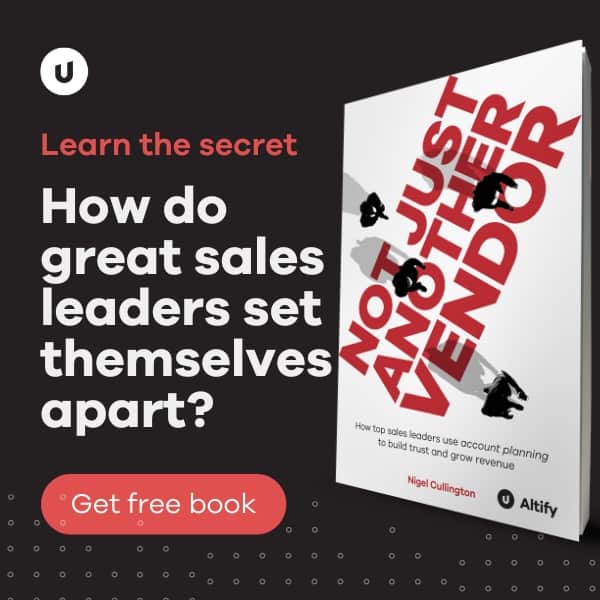[This is the fourth in a series on 6 Factors that are transforming B2B Sales in 2012. This factor deals with Social – and I have broken that down into four separate posts. This is the second of the posts on Social.]
Social Trust
We are seeing a fundamental shift in the interactions between buyers and sellers, and indeed between all commercial entities and their customers. Attitude and preference, as they relate to how a customer thinks about a business, are more likely to be informed by peer groups than by expensive commercials or company statements.
For any network to work effectively, it has to be built on trust. Social networks in their current manifestation deliver benefit to the participant that is directly related to the associated trust currency, a wallet that is filled by value delivered in line with a promise made, where time is donated by the recipient in exchange for value received from the donor. Trust is earned in those micro-transactions and is fundamentally based on the transparency – perceived or real – of the social network engagement. In the Social Universe, you can develop a personality where people learn who you are, what you stand for, and whether you are, in fact, as good as your word.
Honesty and integrity as propellants of commercial energy have not necessarily been the most comfortable bedfellows with the pursuit of profit and revenue – particularly since the turn of this millennium. Madoff, Enron, Lehman, MCI, are names that send shivers down our collective spines.
I’d suggest that honesty and integrity are two of the least understood, and most undervalued, personal and business assets – particularly when it comes to the accelerated world of the Social Universe. Social citizens of high influence can damage a business’s reputation by a single tweet. More importantly however, ‘average’ citizens in the Social Universe can themselves influence large corporations when wielding the tool of social media.
When Social Consumers Go ViralIn September 2011, Bank of America announced a monthly $5 debit card fee. This announcement was poorly timed as it came during Occupy Wall Street’s protests over the bank’s $45 billion bailout. On October 1st, 22 year old Molly Katchpole wrote a change.org petition against the fee, and Molly’s petition reached 300,000 signatures in six days. Bank of America reversed its decision.
When domain registrar GoDaddy.com stated it was supporting SOPA – the Stop Online Piracy Act, deemed by many to be damaging to the independence of the Internet – social media sites revolted. Reddit user selfprodigy declared December 29th 2012 “Transfer your domain day”. Ben Huh, CEO of Cheezburger, tweeted “We will move our 1,000 domains off @godaddy unless you drop support of SOPA. We love you guys. But #SOPA-IS-CANCER to the free web.” Jimmy Wales, founder of Wikipedia, tweeted that Wikipedia was also “proudly” leaving goDaddy. Users pledged to transfer 82,000 domain names to other providers. GoDaddy reversed its position on SOPA.
When it became known that fashion house Armani and Versace were using sand-blasted denim treated with chemicals that were reputed to poison the lungs of 5,000 Turkish denim workers involved in the manufacture, there were hundreds of angry posts on Facebook, and 38,000 people signed an online petition against the Italian designer’s failure to boycott sand-blasted denim. Within a month Armani and Versace publicly condemned and banned sand-blasted denim from their lines.
A reputation for being honest or having high integrity is priceless. It brings trust and openness, deeper relationships and more productive engagement. Trust is ‘truth over time’. Trusted is earned. It is hard to win but easy to lose. Social media is forcing transparency, authenticity and accountability. Corporations and big banks can no longer make business deals without the scrutiny of those it impacts; the Internet, the phenomenon of Wiki leaks and the social and political climate is forcing more disclosure.
Social Trust is Fundamentally Personal
If I asked you who you might consider as your primary trusted sources, you will probably think about your family, your friends, your colleagues at work, other people in your neighborhood or people in your social circle. It is rare that the CEO of MegaCorp or the leader of your government will spring to mind as your primary trusted source. When it comes to picking a provider of services for your home, you are more likely to ask a friend for a recommendation for a plumber than pick one blindly from the White Pages or Craig’s List. If you are choosing a band to play at your ‘rock-chick’ daughter’s wedding, you might ask her friends what local bands she likes, or looks for a recommendation from others that you know to make sure that the band you book is more Metallica than Manilow.
From a purely pragmatic perspective, always being honest means you never have to remember what you said or come up with different versions of the truth for different audiences, exercising your corporate PR department in increasing tangled webs of spin and counter-spin. Beyond the counter-productive nature of inadequate transparency, the reality is that what you, as a business might broadcast in your public pronouncements, is of diminishing value, and it is worth considering whether, in isolation, such expenditure is wise at all.
Lasting business relationships between the seller and the buyer, like lasting personal relationships are built on a foundation of trust that for each of us is fundamentally personal. While always important, trust as a determining factor of business transaction efficacy increases or decreases in amplitude at different phases of the business interaction. This is because risk transfers from seller to buyer before and after the sale. To understand how this manifests in the Social Universe, and where social network interactions are more or less necessary or powerful, it is worth considering the phases of a commercial transaction, bearing in mind that at all times, trust is fundamentally personal.
I will discuss that in the next post



